The International Mountain Museum in Pokhara, Nepal, is a cultural and educational hub that takes visitors into the world of mountain regions. The thematic breadth of the exhibits goes across mountaineering history, diverse mountain cultures, and ecosystems. These exhibitions showcase the beauty of the Himalayas and the rest of the world’s alpine regions with artefacts, photos, and interactive displays of the mountain communities. With a celebration of the beauty and scenic high-altitude environments, the International Mountain Museum instils a deeper understanding and appreciation for these essential and extraordinary landscapes.
How To Reach International Mountain Museum, Nepal

Photo: MMuzammils / Wikimedia Commons
This International Mountain Museum is located in Pokhara, Nepal. It can be conveniently reached by air, bus, and rail.
By Air: The nearest airport to this museum is the Pokhara Airport. You can travel to the museum from the airport by bus or taxi.
By Bus: Local buses offer a budget-friendly, comfortable, and time-efficient way to travel from different locations to Pokhara and then to the museum.
By Rail: Gorakhpur Railway Station is the nearest railway station to the museum. From here, tourists can travel by bus or taxi.
Suggested Read: Bungee Jumping In Kathmandu
Places To Visit Around International Mountain Museum
The International Mountain Museum and its surroundings offer a variety of attractions beyond its landscapes. Here’s a list of places to visit around here:
1. Poon Hill
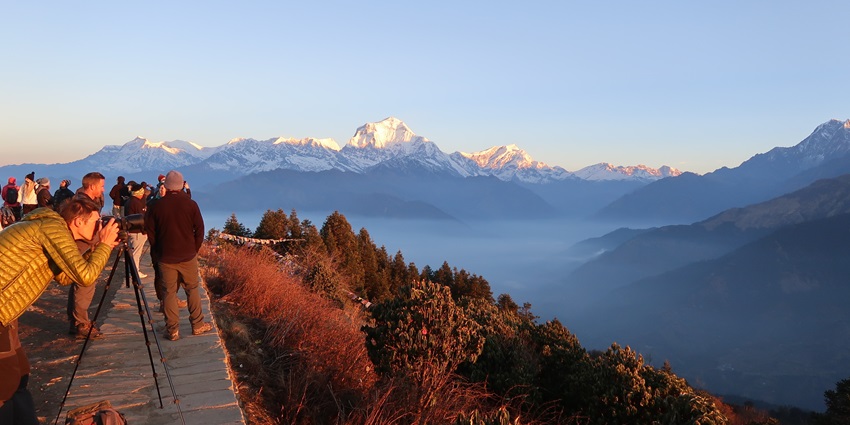
Photo: Thapaliyashreeram / Wikimedia Commons
Poon Hill is situated at an altitude of 3,210 metres in the Annapurna region of Nepal, famed for its panoramic view over the Himalayas. A popular destination for trekking, it gives an excellent sunrise vista over the Annapurna and Dhaulagiri Range, painting the sky with hues of pink and gold. Being enveloped by lush rhododendron forests and villages that are amidst the charming mountains, Poon Hill is the ultimate destination for hassled visitors searching for a long-lasting Himalayan adventure.
Timings: 4-5 days trek
Entry Fee: No entry fee
2. Peace Temple
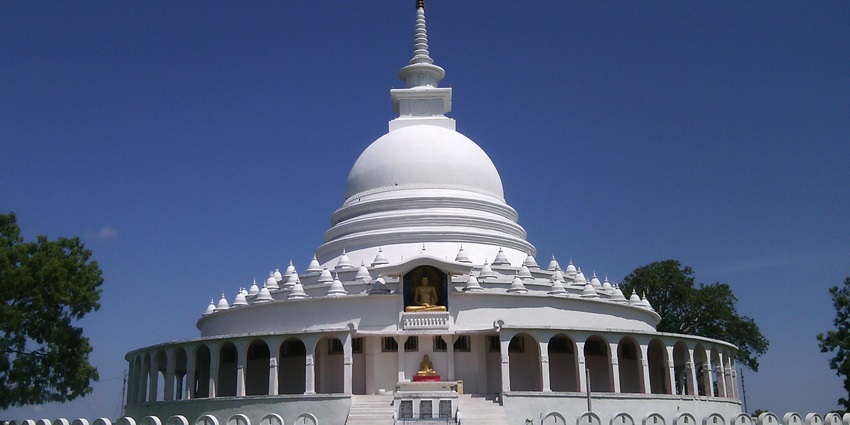
Photo: L Manju / Wikimedia Commons
The Peace Temple, or Shanti Stupa, located in Pokhara, is a beautiful Buddhist monument that offers a serene escape and panoramic views of landscapes. The white stupa sits atop a hill and is an epitome of peace and harmony, promoting mutual understanding and compassion among people of the world. The traditionally white executed mural, together with the dome, brings out classical feelings of serenity. Tourists get to explore the surrounding gardens and panoramic views, adding to their peaceful experience. The Temple of Peace is the best place to stop for reflection and meditation, inviting its visitors to delve deep into their inner world.
Timings: 4 AM – 7 PM
Entry Fee: No entry fee
Suggested Read: Water Parks In Kathmandu
3. Devi’s Falls
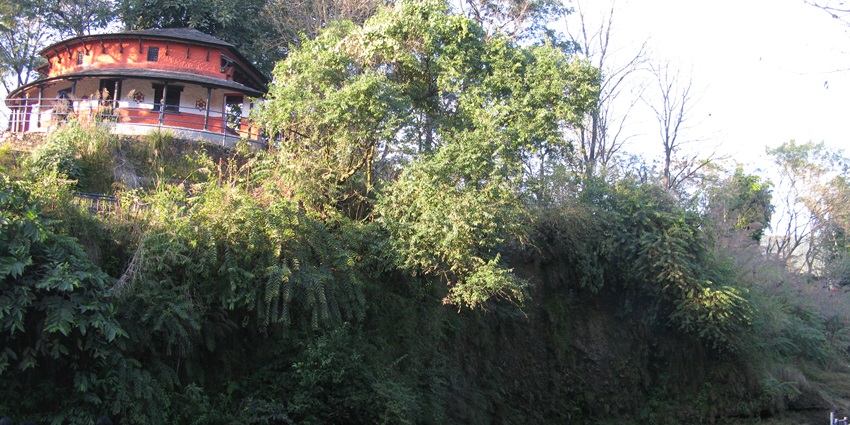
Photo: Nabin845 / Wikimedia Commons
Devi’s Falls is another nature attraction located in Pokhara, and it is widely known as Patale Chhango. This is one of the unique waterfalls where the natural falls drop into a deep gorge, creating an amazing view of cascading water and mist all around. It has been named after a tragic legend and has turned into an interesting place for visitors to explore the beauty of nature’s power. This fall is surrounded by greenery, and a part of it is also covered with calm pathways, making it a beautiful sight and an ideal place for photography. Devi’s Falls is an astounding example of the dynamic and thrilling forces of nature.
Timings: 6 AM – 6 PM
Entry Fee: ₹62.86 / NPR 100 per person
4. Phewa Lake
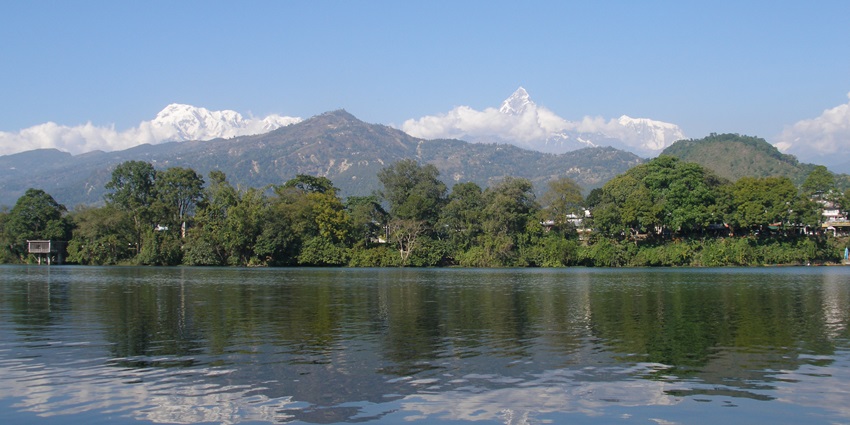
Photo: Vyacheslav Argenberg / Wikimedia Commons
Phewa Lake is a serene, beautiful freshwater lake with stunning beauty and a calm atmosphere. With the backdrop of lush hills and the grandeur of the Annapurna range, the lake is an ideal getaway for tourists. The fascinating element here is the Tal Barahi Temple, which is situated in the middle of the lake on an island and gives a spiritual dimension to this experience. Phewa Lake is undoubtedly a fabulous recreation location with an awe-inspiring view of serene water amidst the natural beauty and serenity of Pokhara.
Timings: 24*7
Entry Fee: No entry fee (other costs may vary)
Suggested Read: Jungle Safari In Nepal
5. Gupteshwor Mahadev Cave
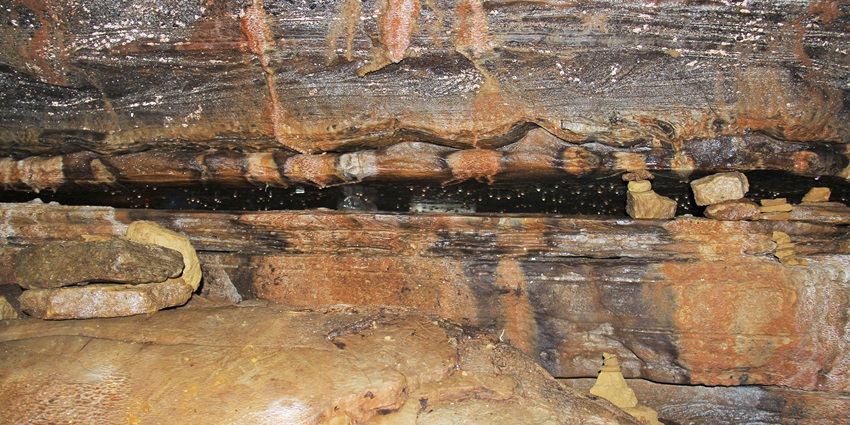
Photo: Yallu007 / Wikimedia Commons
Gupteshwor Mahadev Cave is another place located at a very short distance from Pokhara in Nepal. It is one of the most famous Hindu shrines dedicated to lord Shiva. Within this cave lie internal tunnels that hold, according to myths, statues of gods and goddesses with beautiful religious paintings around them. It is the mystic ambience of the cave, the soothing sound of the waterfall, and the spiritual heritage that blend to make Gupteshwor Mahadev Cave one of the most alluring destinations for both pilgrims and tourists in search of an experience that is at once unique and serene.
Timings: 6 AM – 6:30 PM
Entry Fee: NPR 30 (₹19)
Where To Stay
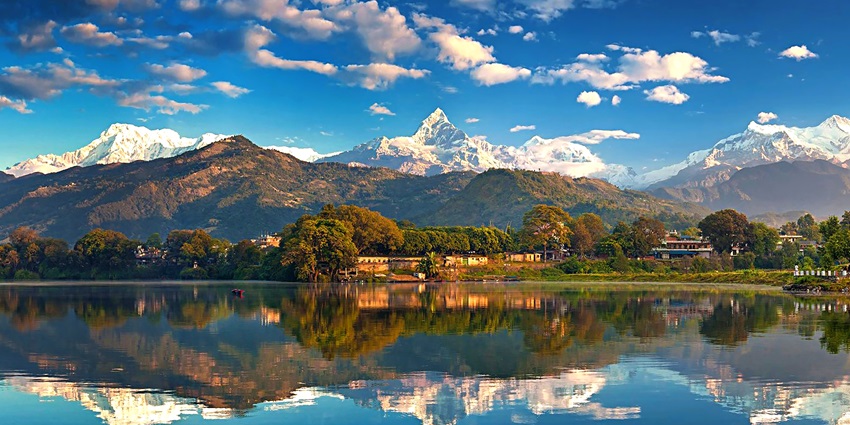
Photo: PageantUpdatess / Wikimedia Commons / Image For Representation Only
Pokhara has many accommodation facilities near the International Mountain Museum, which suit different budgets and tastes. Some recommended places to stay here are Hotel Pokhara Grande, Fish Tail Lodge, and Hotel Jai Mahal. For a good, hassle-free experience, ensure you book in advance while considering the proximity to the local attractions, dining options, and public transport, and check on travel websites or apps for current reviews.
Suggested Read: Guide To Makalu Barun National Park
Where To Eat
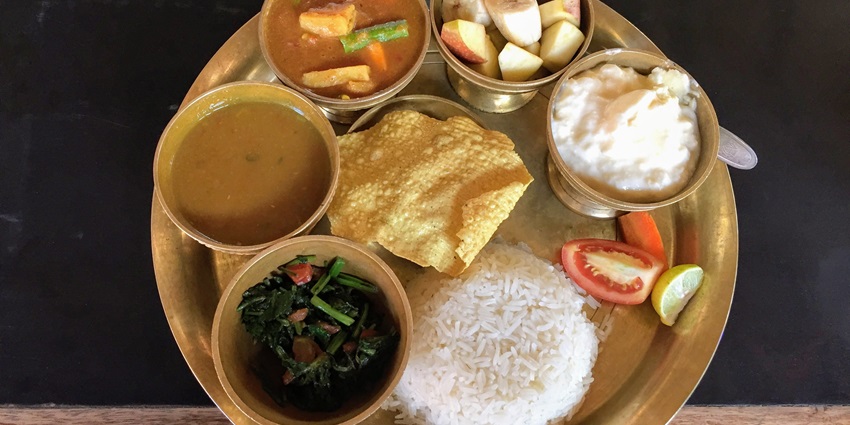
Photo: Subhashish Panigrahi / Wikimedia Commons
You can savour food at Cafe Hyale, Nirvana Terrace Lounge, and the Harbor Restaurant. Visitors can taste local Nepali flavours by indulging in regional specialties.
Best Time To Visit International Mountain Museum
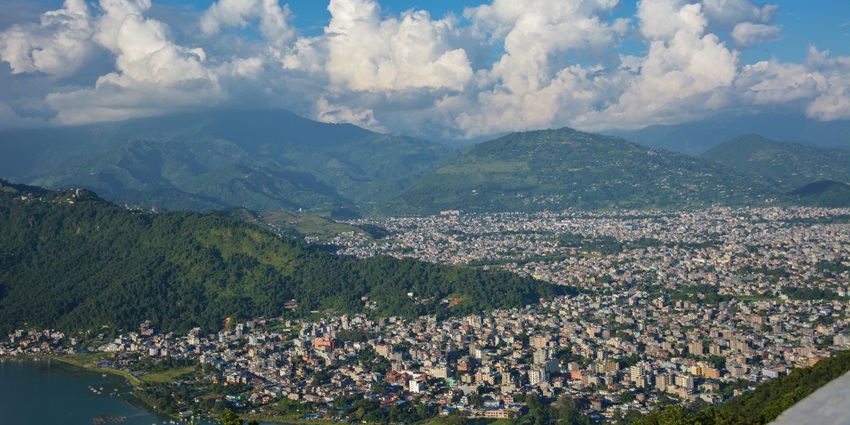
Photo: Utsab Raj Giri / Wikimedia Commons / Image For Representation Only
Tourists can visit the museum in Pokhara all year long as there is no specific best time to visit. However, the locals say that you should visit the museum in the early hours of the day.
Suggested Read: Explore Top Wildlife Sanctuaries In Nepal For An Adventurous Retreat
Other Factors To Consider
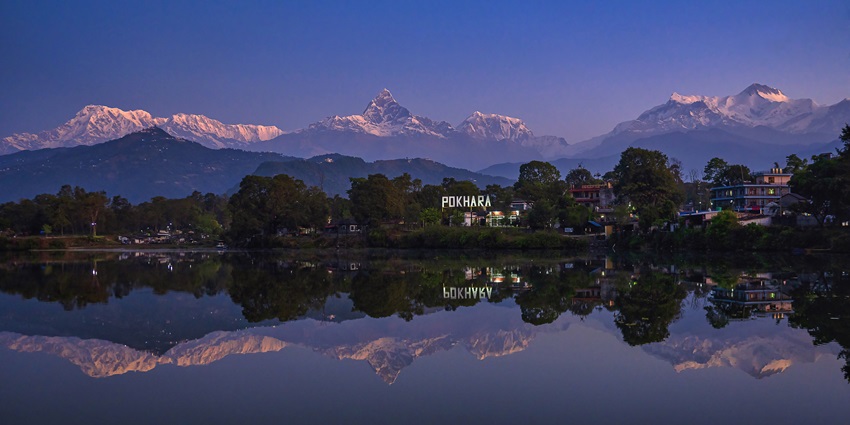
Photo: Prasan Shrestha / Wikimedia Commons / Image For Representation Only
Average Cost Of The Trip
The cost of a trip to this museum varies based on travel style, accommodation, dining, and activities. The entry fee here ranges from ₹80 – ₹350; however, costs may vary depending on other facilities. It can range anywhere between ₹10,000 to ₹15,000.
Tips For Travellers
- Take care as a responsible traveller, and do not litter in the museum complex.
- Be careful while exploring the artefacts displayed inside the museum.
- Show respect to the local customs and traditions in and around the area.
- Respect the guidelines laid down by the administration of the International Mountain Museum.
- Ask for permission to click International Mountain Museum photos.
International Mountain Museum is an exciting journey that explores the cultural, environmental, and historical aspects of mountainous regions across the globe. This truly gives credit to the grandeur of the mountain landscape through various excellent exhibits and engaging displays while sharing information about the multiple communities and challenges involved. Book your next trip to the International Mountain Museum with TripXL to explore this stunning museum.
Cover Photo: MMuzammils / Wikimedia Commons


 WhatsApp
WhatsApp
 Twitter
Twitter









